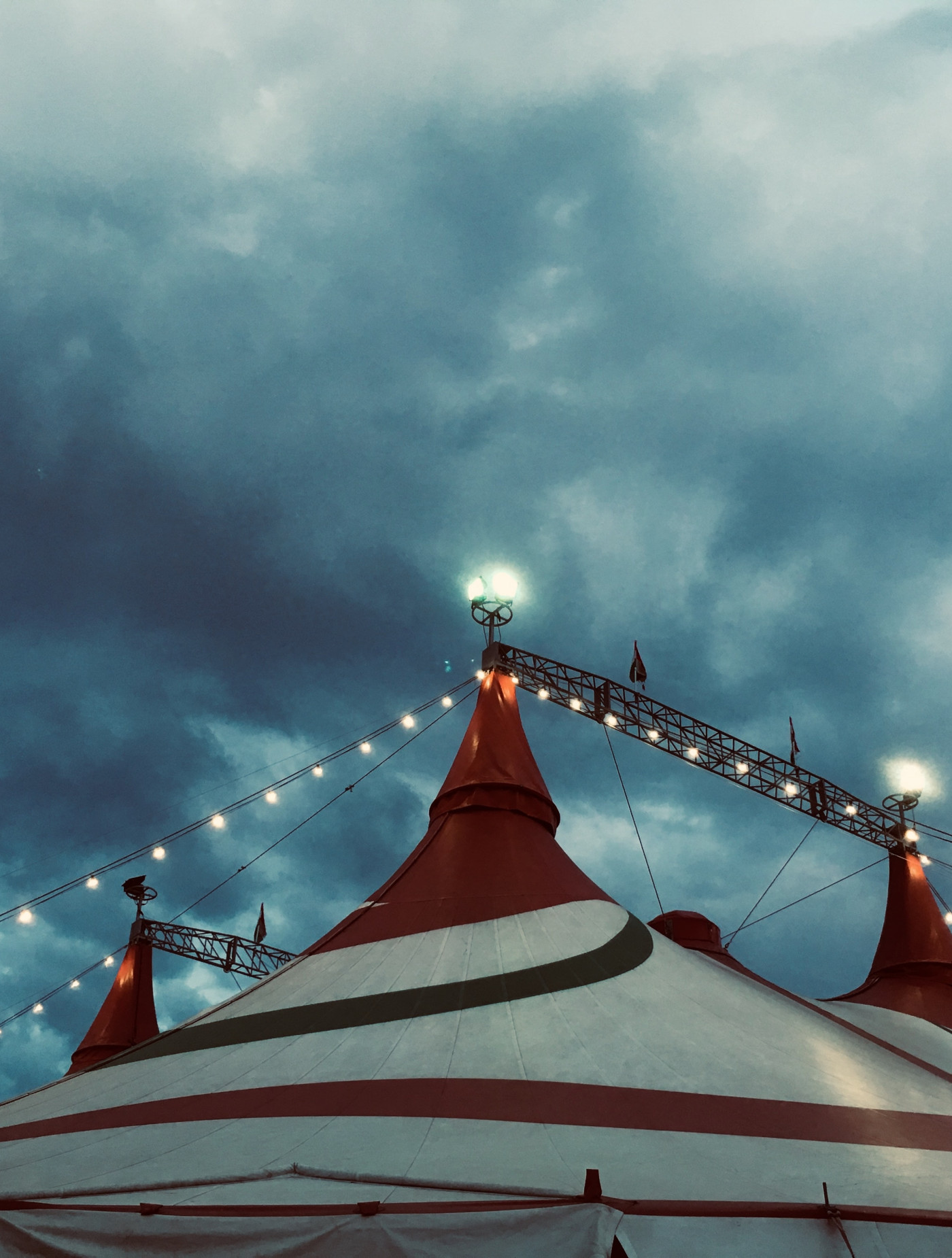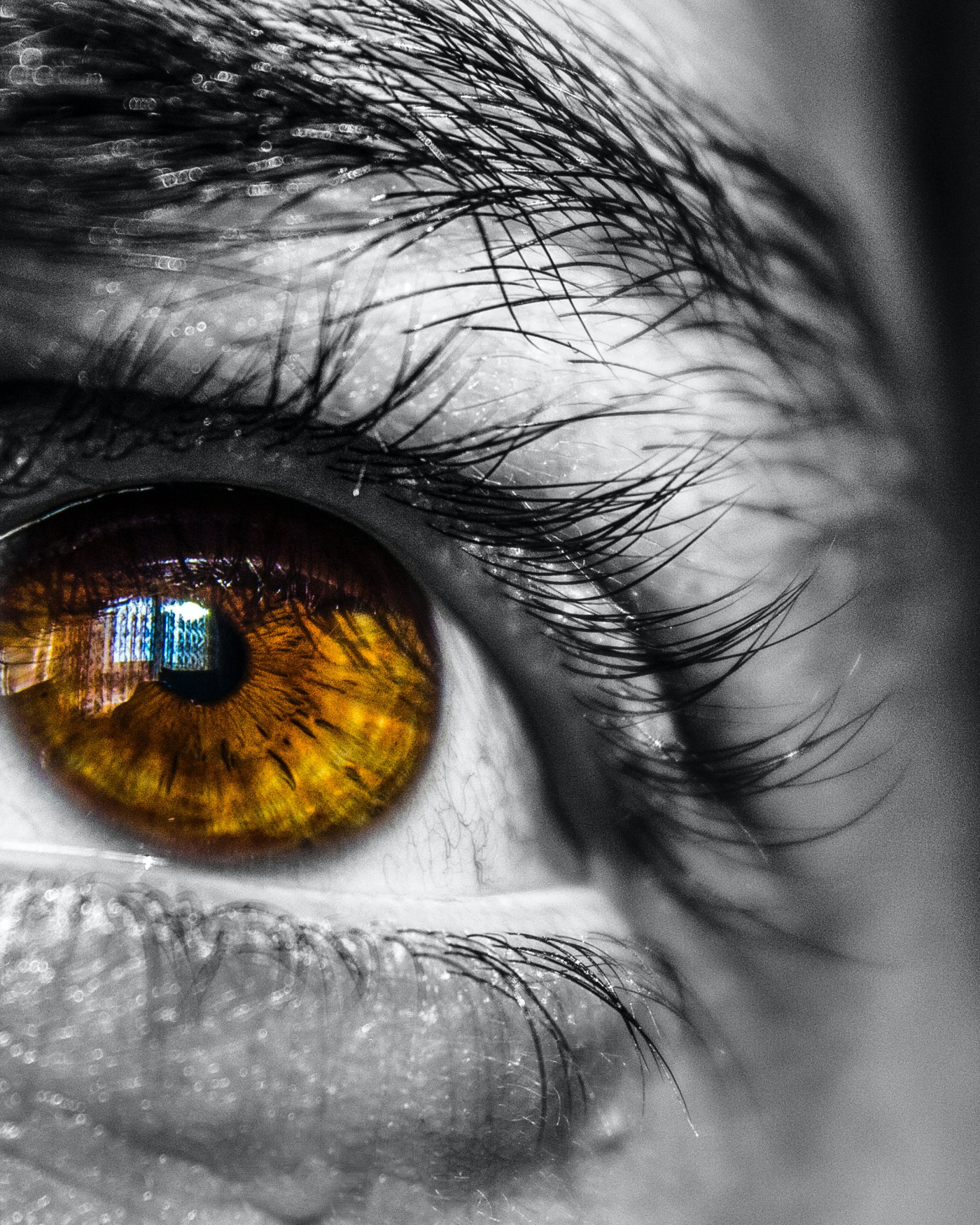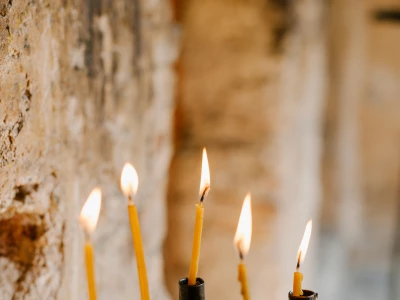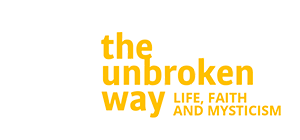Share this article
Seeing With Wonder Again

Life is this simple: we are living in a world that is absolutely transparent, and the divine is shining through it all the time. This is not just a nice story or a fable, it is true.’
― Thomas Merton (1915 – 1968), American Trappist monk, writer, mystic, social activist and scholar of comparative religion.
When Life Sparkled — A Short Story
It was one of those hazy early evenings in late summer that was full of promise. I was around eight years old as I walked with my father through Sandymount, a coastal suburb on Dublin’s Southside. We had joined the throngs of families, coming from every direction, all on our way to Billy Smart’s New World Circus, which had come over from the UK. As we rounded a corner to join an even larger crowd, I saw it in the distance: the 6,000-seat four-mast tent pitched yards from Sandymount strand. I had seen the posters which loudly boasted that it was one of the biggest circuses in Europe and certainly the biggest to have ever visited Ireland. But I hadn’t comprehended or imagined what ‘biggest’ meant. Now that I could see it in reality, I was in awe at the sheer size of the ‘English’ circus. I had been to Irish-based circuses, but this was in a different league.
Inside the huge tent, the atmosphere crackled with anticipation. Soon the lights dimmed, and I, with hundreds of other kids, hurriedly finished off our popcorn or candy floss, barely able to contain our excitement. The ringmaster appeared with a spotlight shining on him. He carried a whip and wore a bright red tailcoat, a black top hat and a cravat to finish his fanciful attire. Throughout the evening, he introduced spectacular world-class acts that left the audience spellbound:
My breath was taken away watching the trick horseback riders as they stood on the backs of the horses, galloping, it seemed to me, at a dangerous speed. The clowns, particularly the one with the pointy hat, were scary but had all the kids, including me, rolling in the aisles with laughter. The animal shows with elephants and tigers brought us into a different world but watching the glamourless trapeze artists swinging at the top of the tent, which looked awfully high to an eight-year-old, was mesmerising. Everything sparkled with almost unearthly energy, and I felt anything was possible at that moment.
Disenchantment

'... you have hidden these things from the wise and learned, and revealed them to little children.
—Matthew 11:25
For a long time, even in the ups and downs of life, I was fortunate to hold onto that childlike view of life that I experienced at Billy Smart’s Circus. Cushla, my late wife, recognised the quality in me. ‘The boy with the fiery eyes and dreams no one can steal’ was a term she used to say to me to encourage me in the hard times. It was a line from a song by the Eagles, one of her favourite bands. The lyric evoked for her my underlying hopeful and optimistic qualities and the way I saw the world. But as the years went by and life got harder, especially when I thought Cushla’s long-term debilitating illness would never improve, and we lost our only daughter, Meera Thérèse, through miscarriage, I sometimes lost my zest for life and my capacity to see the wonder in the ordinary. Instead of looking beyond first impressions, I saw the commonplace, the pedestrian and the banal. But, in my defence, it was probably a natural reaction to grief and thoughts of what might have been. Let’s face it: there’s something wrong with always holding on to a naïve, childish view of life, especially if we witness even worse situations than I experienced. I’m using the word childish here as distinct from the term childlike. Childish attributes include self-centeredness, whining, pouting, throwing tantrums, and wanting one’s way. On the other hand, childlike attributes include innocence, compassion, and a sense of wonder about the world.
Why We Sometimes Don’t See Beauty and Enchantment
Before I met Cushla, I was the typical young man in a hurry. I was ambitious and wanted to ‘succeed’, especially in business. The world was my oyster, I thought. If I hadn’t met Cushla, and with no spiritual rudder, I would probably have bought into the world’s values and become conditioned into seeing things the way our success-orientated society views life.
Buoyed with pride in its scientific achievements, technological advances and ‘rationality’, our secular culture dismisses any belief in an invisible realm. We are encouraged to believe that anything that doesn’t fit into an empirical model doesn’t exist and is impossible. Its concomitant consumerist mindset wants people to be productive in a worldly sense, so ‘non-serious people’ aren’t trusted. Wanting to fit into this society and its values, our vision begins to narrow. We grow jaded and lose our playfulness and ability to explore an imaginative, make-believe world as we did as children.
Sparking Up Your Sense Of Awe And Wonder

‘What was wonderful about childhood is that anything in it was a wonder. It was not merely a world full of miracles; it was a miraculous world.’
— C.K. Chesterton (1874 – 1936) English writer philosopher, Christian apologist and literary and art critic.
To recapture that sense of a miraculous world, Chesterson talks about in the quote above we need to:
· Stop Comparing
In his autobiography, Chesterton talks about how he believes heaven will be full of fields of dandelions. What we consider weeds to be eradicated have, in fact, their unique beauty and value. ‘Dandelions are a miracle’, he says. ‘We undervalue them by comparison: it is not familiarity but comparison that breeds contempt’, he says with uncommon wisdom. He later cites how guests at a house party might ‘sneer at the stinginess of a hostess providing dandelions when all the best hostesses give you an orchid for your buttonhole.’
By remaining in the present and controlling our over-analytical minds, we can learn to appreciate almost anything, including dandelions. The minds of young children are mainly preoccupied with the present. That’s why they can see the extraordinary in the ordinary.
· Let Go Of Attachments
At times we can grow weary. Even if we have good health, comfort and all the material goods we need, we become bored with life. The childlike wonder is gone. This state of being can happen when we begin to lose faith. Then driven by fears of losing out, we clutch and grasp at everything. With a weakened belief in the unseen, we become even more attached to this world which promises us everything but delivers nothing of lasting value. Dismissing an eternal perspective, our secular culture tells us lies about what is important and tries to prevent us from seeing what is worthwhile. This is an incomparably sad predicament—we are made for more. But there’s huge hope: you have the power to change your reality by shifting your focus and recapturing those childlike eyes that can act as a portal to the unseen.
Share this article
Categories
in your inbox

Seeing The Unseen









